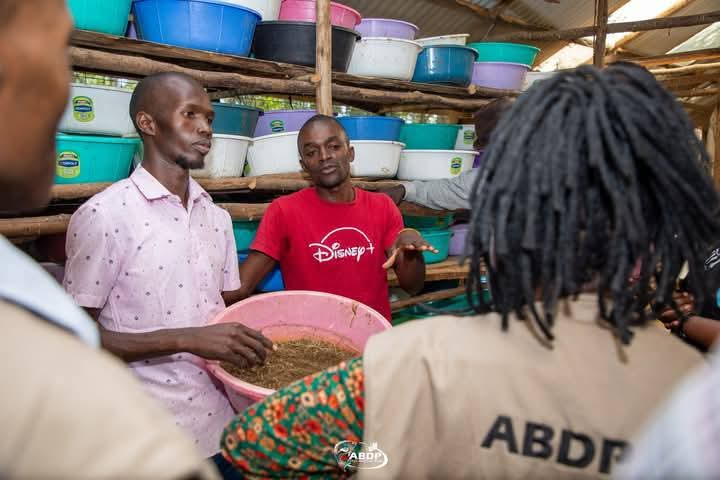The Aquaculture Business Development Programme (ABDP) is driving significant growth in aquaculture enterprises in Nyando Sub County.
The EnviroAgric Youth group in Rabuor area, is leveraging black soldier fly technology to produce alternative fish feeds.
The group’s chairman, Leonard Were, highlighted the transformative impact of ABDP’s training programs on their operations.
“We use waste from slaughter house to feed maggots, which are then sold as fish feeds. This not only provides sustainable feed options but also aids in waste management,” Were explained
During a field supervision mission by the ABDP Project Steering Committee (PSC), chaired by Fisheries and Blue Economy Secretary Rodrick Kundu, the chairman noted that the program has connected their group to farmers who now purchase their feeds.
In Wang’anga village, Nyando Sub-County, another beneficiary, Joash Abende, leads a group of fish farmers who have seen remarkable success with ABDP support.
Consequently, after receiving pond liners, fingerlings, and training, Abende has harvested fish three times, reinvesting the proceeds into expanding his aquaculture enterprise.
“Through the support of ABDP programme, I now own three fish ponds, each stocked with 1,000 fingerlings. This support has enabled me to scale up production and improve my income,” Abende said.
Fish farmers in the region are optimistic of increasing the number of ponds under the program to further boost production and income.
ABDP, jointly funded by the Kenya Government and the International Fund for Agricultural Development (IFAD), aims to enhance incomes, food security, and nutritional outcomes for rural households engaged in aquaculture, providing a comprehensive support to fish farmers in 15 counties, including pond construction, pond liners, predator kits, fingerlings, fish feeds, cone garden materials, and extension services.
Meanwhile, by empowering local communities, ABDP is transforming aquaculture into a sustainable and profitable venture for rural households.
By Robert Ojwang’





